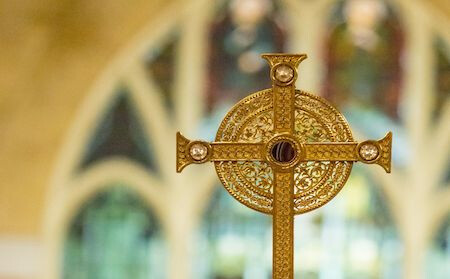Getting Ready for Sunday: March 26, John 9:1-41

Jesus asks, "Do you believe in the Son of Man?" (John 9:35). This question comes near the end of our passage from the Gospel of John, but reminds me of a question asked when we renew our Baptismal Covenant: "Do you believe in Jesus Christ, the Son of God?" This passage serves as a timely reminder to consider thoughtfully our answer to this question.
Having served as a hospital chaplain, the conversations among the disciples as they approached the blind man are very familiar. They were questioning where to place the blame for the man's blindness: with him or with his parents. I have had many conversations where a loved one was in pain or dealing with a severe illness, and the questions asked were: "Why God?" "How could this happen to someone so young?" "What did I do wrong?" When we ask how or why something happens, we assume the risk of not finding an answer. If we cannot find an answer with some degree of certainty, it is possible to fall into deep despair, into darkness. If we do find an answer, it feels as though we are in control over our lives, but it tends to be short-lived. Today’s gospel lesson helps us to see that the question is not "how" or "why." The question is "who."
While all those standing around Jesus and the blind man ask the wrong questions, Jesus keeps saying it is about who is at work before their eyes. After being healed, the blind man describes his healer by name, "the man called Jesus." Later, he calls him "a prophet." Even later, he recognizes Jesus as a man "from God." In increasingly greater depth, over a period of time, this man comes to confess Jesus as his Lord. Meanwhile, the people surrounding them, who claim to know the answers, become increasingly blinded by their obsession with the wrong questions. Fear and anxiety grips their hearts, while openness and trust enables the man who was blind to walk closer to the light. He is set free.
When we ask the wrong questions, we, too, can become bogged down in the wrong answers. Like the disciples, we can become caught up in believing that sin is the result of bad behavior, and we must have done something to deserve the inevitable punishment. From John’s perspective, however, this is not about our behavior. It is about God's revelation in Jesus Christ. The man's blindness is not an occasion for reflection on sin and causality. It is an occasion to consider the revelation of God's grace in the world. Jesus says, "Neither this man nor his parents sinned, he was born blind so that God's works might be revealed in him."
All of God's children are born blind in some sense, and through our own anointing and washing, we are also given new sight. Knowing how the man became blind is not as important as believing in the one who can give sight to the blind. While, Jesus healed the man who was blind in verse 6 of this chapter, there are 35 more verses to the story. We are given new life in baptism early in our lives, but there are many more verses to our own story. Just as Jesus suddenly breaks into the blind man's life, God has broken into your life. The first words that Jesus speaks to the blind man are the same words that Jesus speaks to you today: go and seek the one who is sent, the one sent by God. By this invitation, Jesus brings you out of the darkness and into the light. You, too, have been empowered to see the marvelous works of God with new eyes, and you are free to give glory to God in the way you choose to live out your lives.
If like the blind man, we can hear the words of Christ without having to know how or why; if we fully accept the anointing of our heads and the cleansing of our sins; and if we can witness to the truth of Christ's light in our lives even in the face of darkness, then when we hear the question, "Do you believe in the Son of Man?" we, too, can say, "Yes, Lord we believe."


